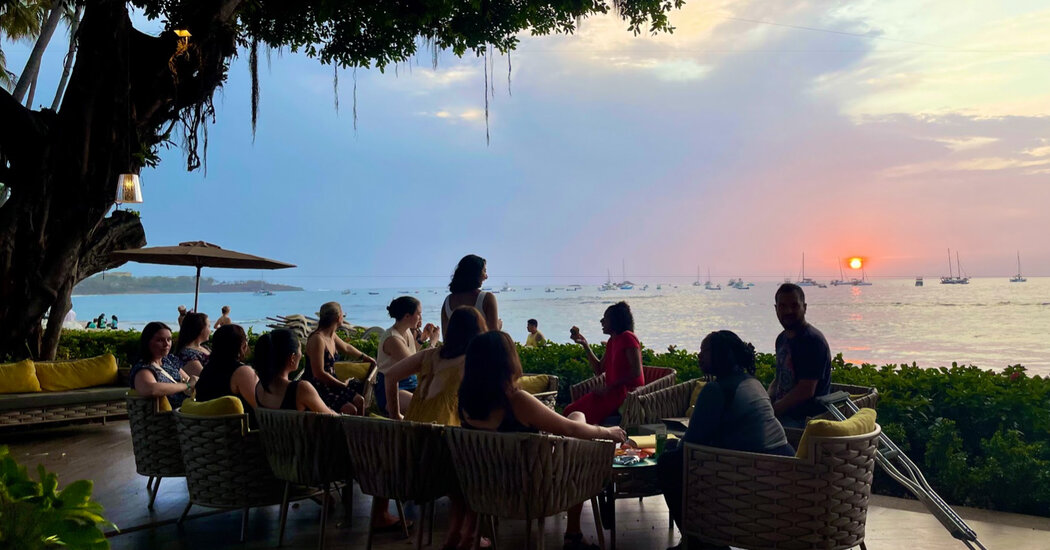We were on a quintessential girl’s trip to Costa Rica. Together, we gulped icy drinks by the hotel pool, were battered by waves during a surf lesson, had our tarot cards read aboard a catamaran, and danced our hearts out, powered by espresso martinis, to early 2000s anthems on a rooftop.
But we didn’t capture any of this on our phones. No Instagram stories were posted of the fun being had. No TikToks either. We didn’t text photos to friends and family in far colder climates back home.
And if there wasn’t a picture, well, did it happen? I had wondered if a vacation without my phone would reprogram my iPhone-addled brain, whether it might deepen the connections I made or improve my travel experiences. So, in mid-April, I joined a group of 10 other women in their 20s and 30s for a four-day, phone-free tour of Costa Rica’s Guanacaste Province, on the country’s northwestern coast, a picturesque place of breathtaking beaches, tropical forests and, everywhere around you, the chance of a surreal wildlife sighting.
To document my vacation, I brought only a pen, a notebook and a disposable camera.
‘More present in the moment’
FTLO Travel, which started offering group tours in 2016 for solo travelers 25 to 39 years old, organized our phone-free trip. Most FTLO clients are women, said Tara Cappel, the company’s founder and chief executive, and the majority of them are traveling solo for the first time.
The company has long had a rule prohibiting phones at dinner, she said, and the phone-free trips, which began this year, are an extension of this. “Removing that sort of temptation has always helped facilitate better bonding and conversation,” said Ms. Cappel, 35.
The hope in providing an entirely phone-free experience, she continued, is that travelers could “be present in the experience and the destination and with each other.”
She added that FTLO’s phone-free trips this year, which start at $1,699 and also head to Iceland, Mexico, Cuba and Puerto Rico, are in strong demand. My Costa Rica trip was sold out and overall, the company anticipates about 3,000 travelers across the hundreds of trips they’re offering this year. .
The interest in these trips stem in part from a growing trend among travelers to try to escape technology’s tether on daily life. Operators are moving beyond offering meditation retreats and truly remote locations — even cruises and hotels in buzzy vacation hot spots these days market their disconnection experiences. At…
Click Here to Read the Full Original Article at NYT > Travel…
